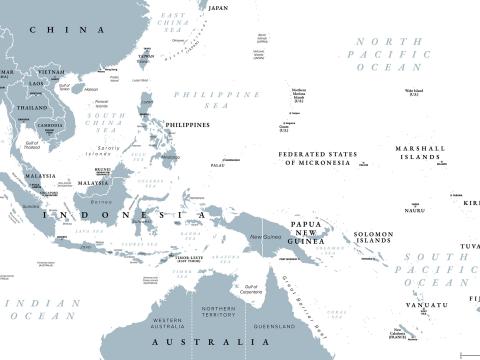President's Commentary: Innovation and Modernization for the Intelligence Community
In an age of rapid technological change and dynamic and evolving global threats, modernization and innovation are not optional for the intelligence community (IC)—they are mission-critical. For mission success, the IC is embracing emerging technologies, fostering institutional agility and strengthening collaboration across agencies and intelligence disciplines and with international partners.
Modernization must be inclusive, spanning the full spectrum of intelligence—from human intelligence and signals intelligence to geospatial, measurement and signature, open source and cyber intelligence. Each discipline brings unique strengths, and innovation enhances their integration. Delivering timely, actionable insights in a complex threat environment requires interoperability and data sharing among agencies and international allies and partners.
Emerging technologies, such as artificial intelligence (AI), advanced sensing, next-generation networking, cloud architectures and edge computing empower real-time intelligence at the tactical edge and are already reshaping the intelligence landscape. For example, AI enables analysts to process vast data sets, detect anomalies and generate predictive insights.
The application of AI to intelligence and national security challenges is just beginning. During an interview following his selection as the awardee of the 2025 Charlie Allen Award for Distinguished Intelligence Service, Gilman Louie, one of the IC’s innovative leaders and forebears, remarked that the transformative power of AI is underappreciated. With AI currently outperforming 90% of the world’s mathematicians, and given AI’s nonlinear learning of code, as an example, it is conceivable that self-improving code will be made available by AI within two years. Consequently, even relatively small capability advances in AI between nation-state peer competitors may provide a disproportionate advantage.
Additionally, quantum computing, which some experts say will be a reality sooner rather than later, holds the potential to revolutionize encryption, optimization and complex modeling. According to the National Security Agency, the United States needs to plan now for the quantum future. “Once the first cryptographically relevant quantum computer boots up, any system not upgraded to quantum-resistant cryptography will be susceptible to attack, the agency warns on its website.
The IC is not standing still. The Intelligence Advanced Research Projects Activity invests in high-risk, high-reward research and collaboration across IC elements and the Department of Defense, and the private sector continues apace. Yet innovation is not just about technology; it’s about mindset, partnerships and agility. The IC must continue evolving its acquisition models, workforce development and organizational culture to keep pace with the private sector and adversaries. This includes embracing commercial technologies, streamlining procurement and cultivating a digitally fluent workforce. Louie recounted his recruitment from Hasbro by then-CIA Director George Tenet to serve as the founding CEO of In-Q-Tel, the pioneering global investment firm. Louie’s background as a Silicon Valley video gamer and his family’s record of service to the nation made him the perfect candidate to build the modern foundation for public-private technology partnerships.
Equally important is the imperative to enhance interoperability and information sharing with international allies and partners. In a world of transnational threats—from cyber attacks to disinformation campaigns—no nation can go it alone. Secure, real-time collaboration across borders is vital to collective security and mission success.
Leaders across the IC will focus on modernization and innovation at the 2025 Intelligence and National Security Summit, which is co-hosted by AFCEA International and the Intelligence and National Security Alliance, September 18-19. The annual event brings public, academic and private sector leaders together to advance collaborative solutions to critical intelligence and national security challenges. Participants will explore issues such as open-source intelligence, and large language models, AI integration, emerging technologies, space acquisition, great power competition and much more.
The IC will always face challenges and must continually innovate and modernize. Legacy systems and other hurdles can hinder progress, but the opportunity is clear: by embracing innovation across every discipline and domain, the intelligence community can ensure it remains not just effective but dominant in safeguarding national and global security.
The future of intelligence depends on our ability to transform wisely, partner globally and innovate relentlessly.





Comments